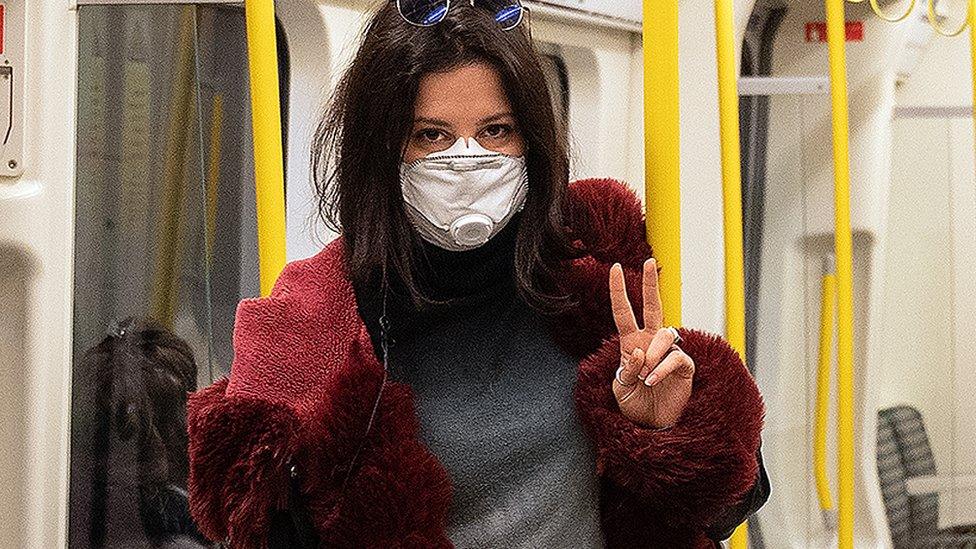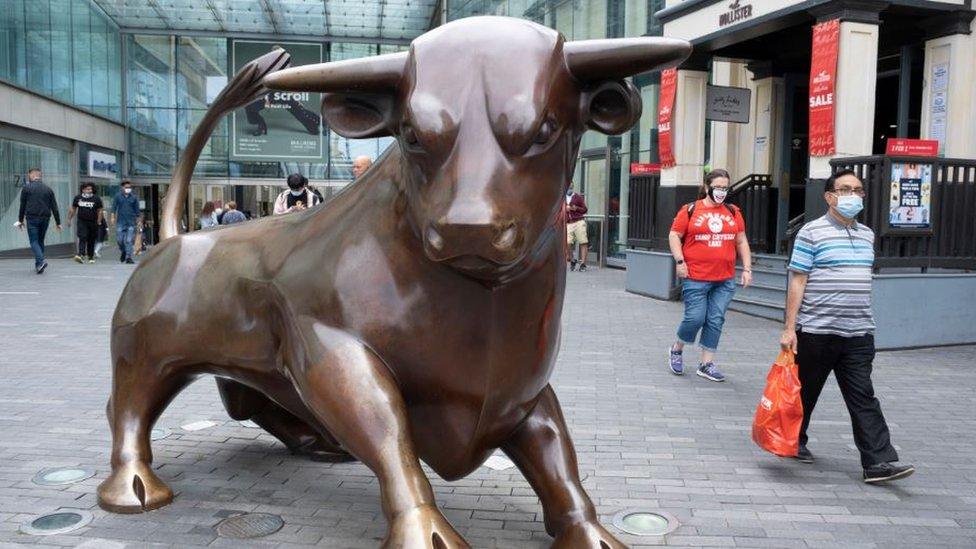Coronavirus: Birmingham households could face restrictions as cases rise
- Published

The city council said the increase was also due to more testing taking place
More restrictions could be introduced in Birmingham to combat a dramatic rise in Covid-19 cases.
There were more than 60 cases per 100,000 residents in the week to 4 September, compared with 28.1 the week before.
Health Secretary Matt Hancock has warned there could be a second spike in coronavirus cases due to young people breaking social-distancing rules.
New rules about households mixing could be brought in, health bosses say.
Birmingham's director of public health, Dr Justin Varney, told BBC News he was concerned by the "significant" rise.
He said he believed it was down to "people coming together over the bank holiday, visiting friends and family in their private homes and unfortunately just forgetting to keep that social distance".
The city council said the increase was also due to more testing taking place, with additional walk-in sites testing more than 3,000 people last week.

Birmingham's director of public health, Dr Justin Varney, said "We're seeing the numbers rise quite significantly"
"The majority of new cases in Birmingham identified over the last week have been in the 20-39 age group and we have seen a rise across all ethnic groups," a spokesman said.
"It is important to reiterate that all of us have to be alert, maintain social distancing outside of the houses we live in and limit the numbers when we visit other people's houses as this is where it appears we are seeing the infection spreading most."
Solihull has also had a rise in cases, from just over 10 per 100,000 in the week to 28 August to more than 42.5 in the week following.

Analysis - Daniel Wainwright, BBC England Data Unit
When Birmingham was placed into the "enhanced support" category of Public Health England's watchlist, on 21 August, the city council's leader Ian Ward said it was a "wake-up call".
Back then, the city recorded 31 cases per 100,000 residents in a week.
Unfortunately, new cases in Birmingham are now at their highest since April, when the whole country was in full lockdown.
There were more than 60 cases per 100,000 residents in the week to 4 September, compared with 28 per 100,000 the week before.
Neighbouring Solihull has also seen its rate rise steeply, from 10 per 100,000 to nearly 43, while Sandwell, another area of enhanced support, is down slightly on the previous week, but its rate has been fluctuating between about 20 and 30 cases per 100,000 people since the middle of July.

A third of all cases in England last week were people aged between 20 and 29, the government has said.
Dr Varney said teams would meet on Thursday to discuss the increase and any possible restrictions.
"If you look at what has happened to other areas that have had increasing rates like we have, then we may well see restrictions around household mixing because that does seem to be what is driving it here," he said.
"But those decisions are still to be made and there is a lot of analysis going on and conversations between the council, Public Health England and government to look at what is the most appropriate set of next steps to take to keep our city safe."

Follow BBC West Midlands on Facebook, external, Twitter, external and Instagram, external. Send your story ideas to: newsonline.westmidlands@bbc.co.uk , external
- Published7 September 2020

- Published28 August 2020

- Published27 August 2020

- Published25 August 2020
